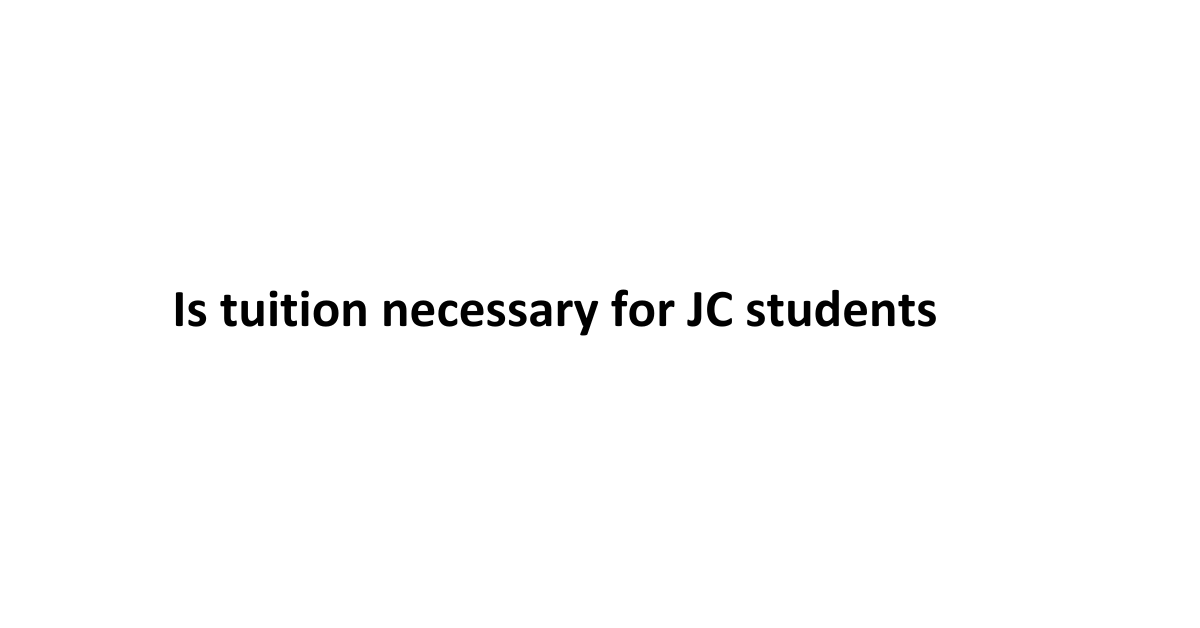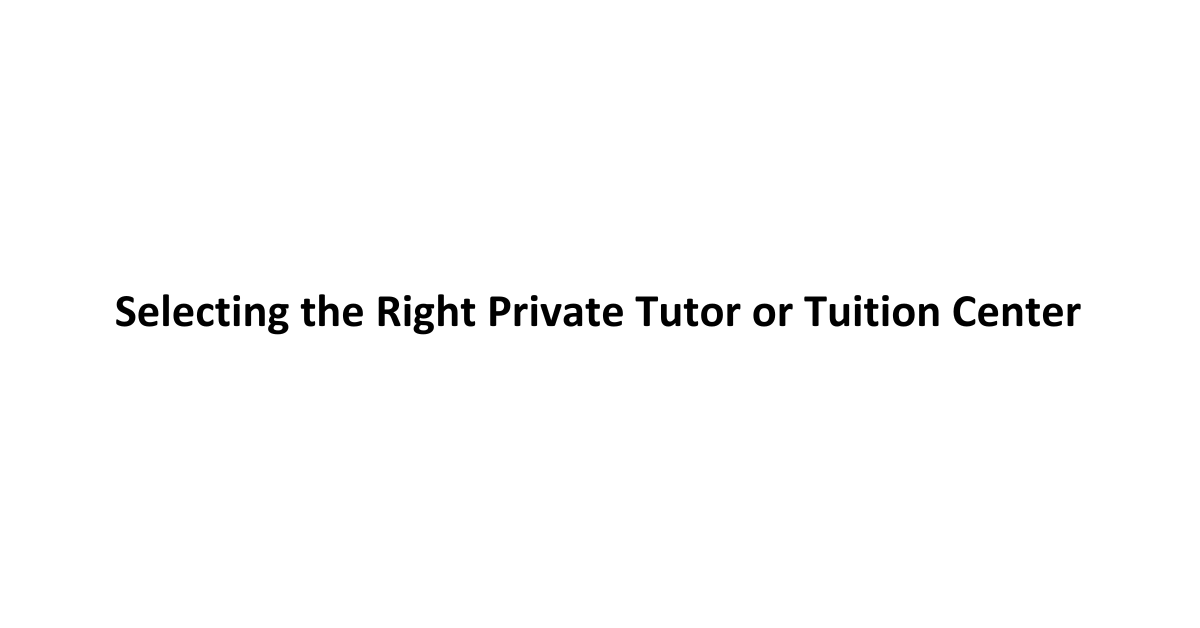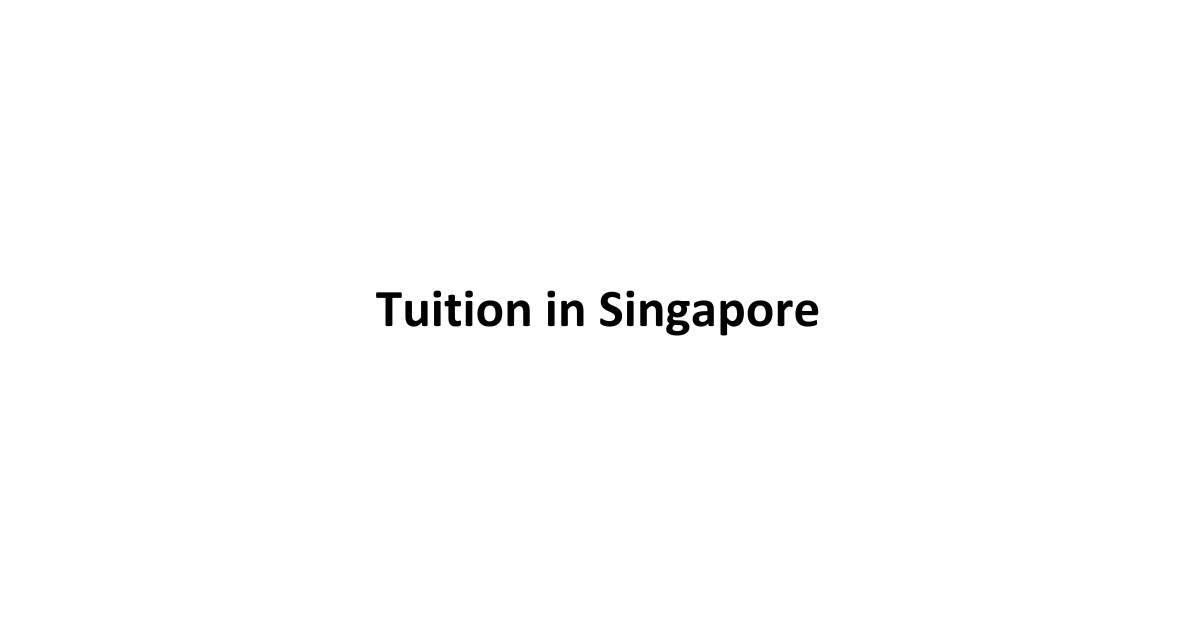04 Oct 5 Signs Your Child Needs JC Economics Tuition by Dr. Anthony Fok
As students in Singapore progress to Junior College (JC), they face the daunting challenge of preparing for the A-level examinations, with Economics being a pivotal subject. While many students excel in their studies independently, others may find themselves struggling to grasp the complexities of Economics. In such cases, JC Economics tuition can be a valuable resource to bridge the gap and ensure success. Dr. Anthony Fok, an experienced educator, has identified five signs that indicate your child may benefit from JC Economics tuition.
1. Consistently Declining Grades
One of the most evident signs that your child may need JC Economics tuition is a consistent decline in their Economics grades. If their performance is progressively worsening despite their efforts, it may indicate a fundamental misunderstanding of the subject matter. A qualified Economics tutor can help identify and address these gaps in knowledge, ultimately leading to improved academic performance.
2. Difficulty Understanding Key Concepts
Economics is replete with intricate concepts and theories that can pose a challenge for students. If your child finds it challenging to grasp fundamental Economics principles or struggles with understanding the core theories, it may be time to consider JC Economics tuition. A skilled tutor can simplify complex concepts, provide real-world examples, and offer personalized guidance to enhance your child’s comprehension.
3. Lack of Confidence in Economics
Confidence plays a significant role in academic success. If your child lacks confidence in their ability to excel in Economics, it can hinder their performance. Dr. Anthony Fok emphasizes the importance of building confidence through JC Economics tuition. A tutor can boost your child’s self-assurance by providing expert guidance, constructive feedback, and a supportive learning environment.
4. Inadequate Time Management
Effective time management is crucial for JC students, as they juggle multiple subjects and commitments. If your child struggles to allocate sufficient time to Economics amidst their busy schedule, they may benefit from tuition. A dedicated Economics tutor can help create a structured study plan, prioritize key topics, and ensure that your child optimizes their study time efficiently.
5. Limited Access to Resources
Access to high-quality study resources and materials is vital for success in Economics. If your child lacks access to comprehensive notes, practice papers, or guidance, it can impede their progress. JC Economics tuition often provides students with valuable resources, including study materials, practice questions, and exam strategies that can make a significant difference in their performance.
Dr. Anthony Fok’s Expertise in JC Economics Tuition
Dr. Anthony Fok is a renowned educator and economist with extensive experience in JC Economics tuition. With a passion for teaching and a deep understanding of Economics, Dr. Fok has helped numerous students achieve remarkable improvements in their Economics grades. His personalized approach to tuition, coupled with his dedication to each student’s success, has earned him a stellar reputation in the field of JC Economics education.
In conclusion, if your child exhibits any of the signs mentioned above, it may be an opportune time to explore JC Economics tuition with the guidance of an experienced educator like Dr. Anthony Fok. Through targeted support, customized learning plans, and expert insights, your child can gain the confidence and knowledge needed to excel in Economics and achieve their academic goals.







